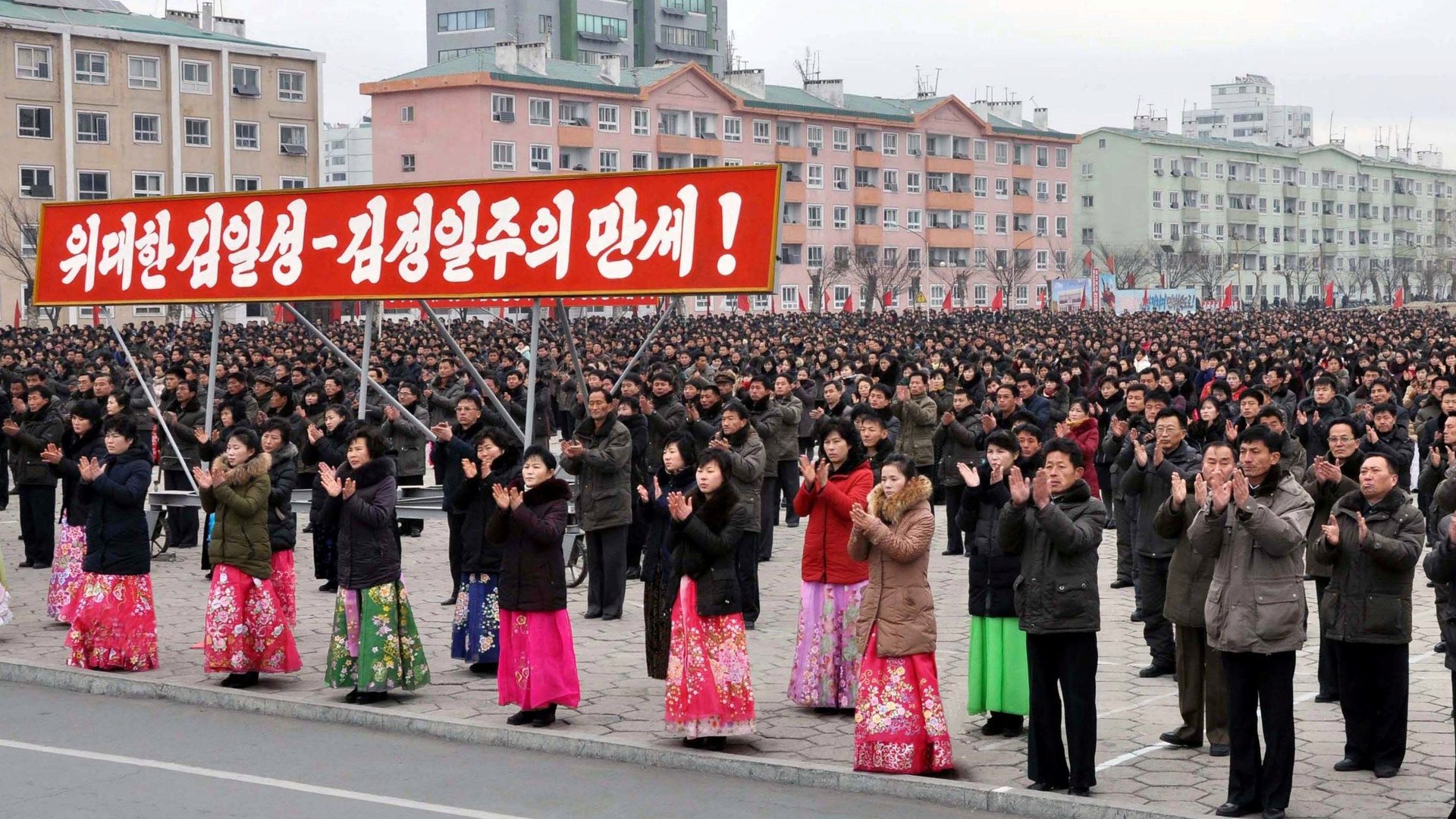North Koreans are proud of their country’s nuclear weapons
The details of the US-North Korea summit are set, and the buildup has officially begun. Donald Trump announced via Twitter yesterday—when he also welcomed home three American hostages released by Pyongyang—that his historic meeting with Kim Jong-un will take place in Singapore on June 12.


The details of the US-North Korea summit are set, and the buildup has officially begun. Donald Trump announced via Twitter yesterday—when he also welcomed home three American hostages released by Pyongyang—that his historic meeting with Kim Jong-un will take place in Singapore on June 12.
With so much to focus on in the weeks ahead—the summit could pave the way for a peace treaty to officially end the 1950-53 war that technically never concluded—it will be all too easy to skip over public perceptions of the summit within North Korea itself. The world is not used to caring about how everyday North Koreans, often desperately poor and living in fear, perceive events. The repressive Kim regime tightly controls news sources, after all, so their impressions are highly skewed. (Or, they doubt the official line and are jailed or tortured as a result.)
In the case of the summit, many North Koreans believe it’s been brought about in the first place by their country’s hard-won success in developing a nuclear arsenal, made possible in part by their many sacrifices. Late last year Kim announced that the mission of completing that arsenal—the nation’s “treasured sword”—had finally been completed. He then began a diplomatic blitz that’s included two meetings with Chinese leader Xi Jinping and one with South Korean president Moon Jae-in. He’s also met with US secretary of state Mike Pompeo, who this week brought home the American hostages.
Yesterday, images of Kim shaking hands with Pompeo were shown on Korean Central Television and in the key Rodong Sinmun newspaper, which also made a reference to upcoming US-North Korea summit for the first time in state media.
For Kim, living in the shadow of his late father and grandfather, the photo of Pompeo shaking his hand is a credibility booster. A similar photo with Trump will be even more of a boost.
The perception among North Koreans that their nation’s nuclear strength has finally forced a sitting US president to the negotiating table contrasts sharply with Trump’s narrative. The way the US president paints the picture, it’s the international pressure on North Korea that he’s orchestrated that has brought Kim to the table—a view Pyongyang sharply criticized last weekend.
To many North Koreans, the upcoming summit is about the US recognizing their country—on the world stage—as a nuclear power. Jean Lee, director for the Korea Foundation Center at the Wilson Center, a Washington-based think tank, recently told the South Korean newspaper Dong-A Ilbo: “North Koreans do not believe at all that their leader would give up nuclear weapons. They regard the North Korea-US summit as an opportunity to confirm their status as a nuclear power.”
North Koreans, she added, take great pride in their nation’s nuclear arsenal.
She also said Kim could keep some nuclear facilities carefully hidden while showing the dismantling of others to inspectors. (North Korea is probably the most-tunneled nation on the planet and could easily hide weapons of mass destruction and related facilities.)
At the inter-Korean summit, Kim did make a pledge regarding denuclearization, but it was vaguely worded and similar to past promises (paywall) that later proved empty pacts. Trump and other world leaders, of course, want complete, verifiable denuclearization.
The disjoint between the perceptions inside and outside of North Korea over nukes has something of a parallel in another geopolitical hotspot in Asia: the South China Sea. As Quartz previously reported, the Chinese public, indoctrinated by schools and state media, firmly believes in China’s claim to nearly the entire sea, even as the international community views those claims as wildly overreaching and legally invalid. Chinese patriotic fervor over the issue is often overlooked outside of China.
Similarly, the pride many North Koreans take in their country’s nuclear achievements will likely be overlooked in the lead-up to the summit. But given the disjoint between expectations on both sides, it’s worth keeping in mind.